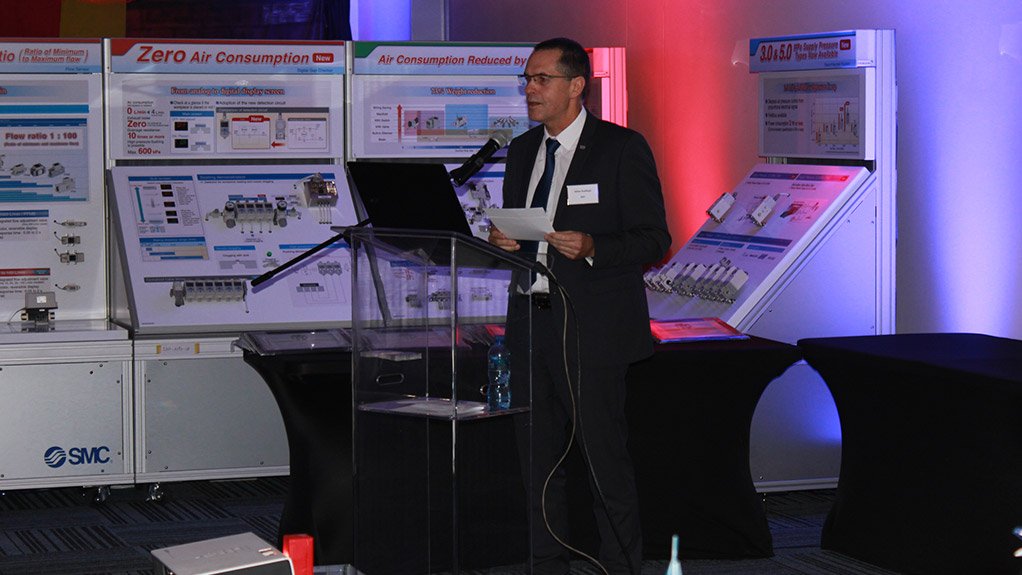The judges of the Japanese industrial components company SMC and German industrial drives and motors multinational SEW Eurodrive 2015 PneuDrive Challenge were impressed with the quality of the entries by South African university student teams.
The three winning teams, the University of Stellenbosch team placed first and the University of the Witwatersrand teams second and third, received their awards at a ceremony in January, but SMC South Africa GM Adrian Buddingh noted that all the papers were well-prepared and professional, and the accompanying calculations and drawings were of high quality.
“While most of the entries involved beer or breweries,” he said tongue-in-cheek, “I personally reviewed the submissions in detail and agree with the judges that the quality of submissions was very high, which is promising for the students’ careers and our industry.”
The 2015 challenge consisted of South African engineering students designing an automated system to reduce or eliminate bottlenecks, inefficiencies or challenges in a food and beverage factory. The competition objectives included eliminating wastage in a factory, whether of resources, time or product.
The first-place team designed the BottleBot machine; an automated bottle picker and packer for a microbrewery in Stellenbosch. An innovative aspect of the design of the robotic arm is that it raises the bottles towards the vertical to reduce the moment of inertia and energy required while turning to the crate and then extending to place the 12 bottles.
The machine replaces manual work of three people and consumes only 24.474 kWh a year, though the machine is inactive for much of the time, owing to the batch nature of the brewery’s production processes. The team is considering renting out the machine to microbreweries when they need it to overcome the lack of continuous use.
The second-place team had designed an anaerobic digester for a potato-chip factory that turns waste into energy. The system helps to dispose of solid waste and clean wastewater in the process prior to discharge.
The third-place team had designed an automated warehouse floor cleaner, which can also separate solid and liquid waste from floors without assistance.
South African Institute of Mechanical Engineers CEO Vaughan Rimbault, whose association has been involved with the challenge for several years, noted that the PneuDrive Challenge provides a valuable bridge between theoretical learning and business.
All the entries were required to present a concept design and a business case for the system, as well as cost analyses and feasibility of companies using similar systems.
“The teams had to put in extra work during their final year of studies while completing their dissertations, the competition showcased the quality of engineering training in South Africa,” he said.
SEW Eurodrive South Africa sales and marketing GM Conrad Pilger concurred, noting that the students exceeded expectations and developed innovative systems with the companies’ technology and components.
The companies announced that they would not sponsor the competition during 2016 to focus on business priorities, while reviewing the competition to ensure its continued industry relevance and sustainability.
However, Buddingh said that the first-place team would be given the components to build their BottleBot machine, and deploy the solution into industry, if there is demand.
Most of the students at the event told Engineering News that they would focus on furthering their careers or read for their master’s degrees, and many noted that the competition helped them to identify special areas of interest within the field of mechanical engineering.
Edited by: Martin Zhuwakinyu
Creamer Media Senior Deputy Editor
EMAIL THIS ARTICLE SAVE THIS ARTICLE
To subscribe email subscriptions@creamermedia.co.za or click here
To advertise email advertising@creamermedia.co.za or click here













